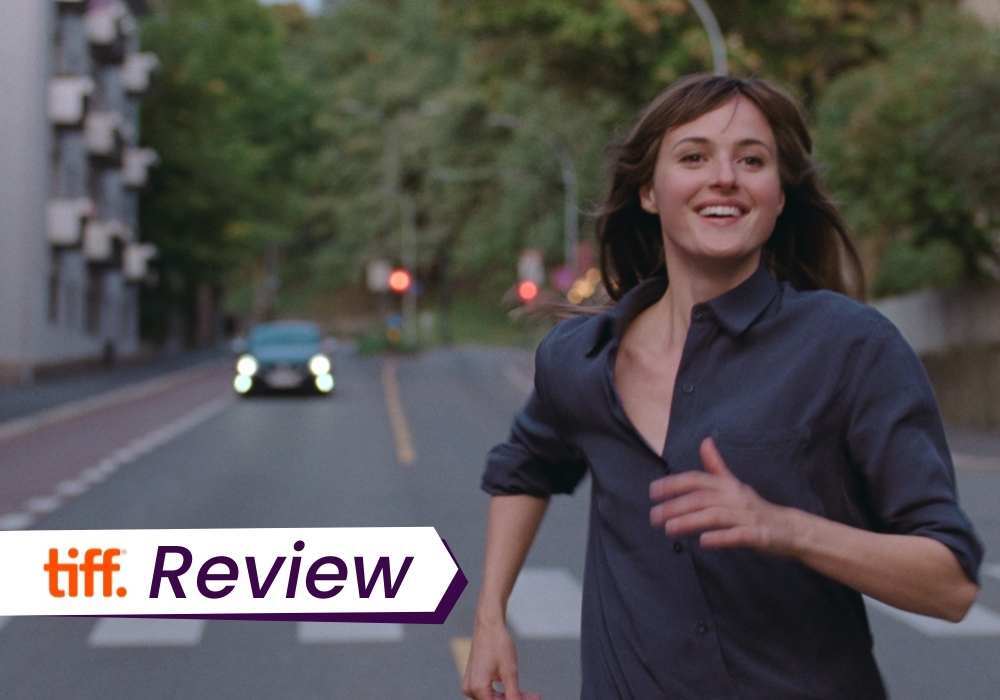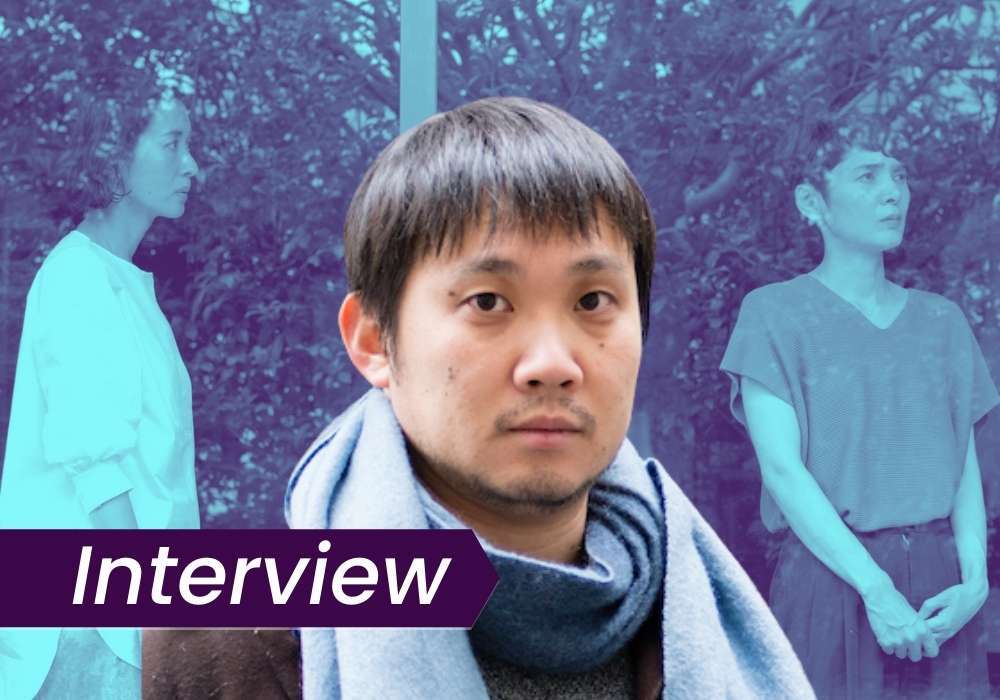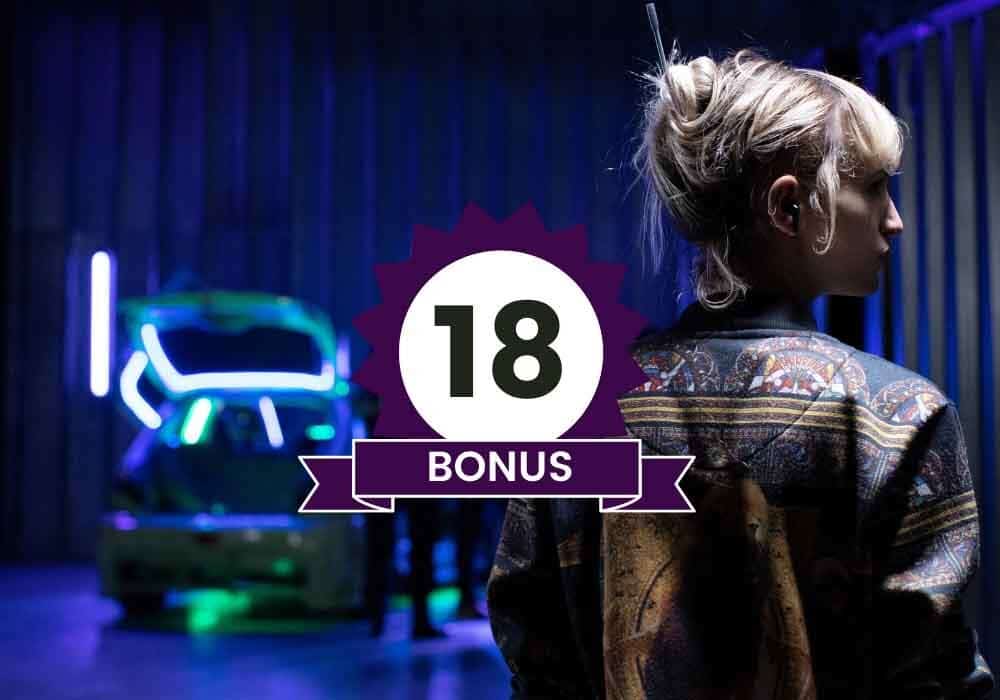This year’s International Feature Oscar contenders are stacked. With the shortlist being announced next week, these are the films we hope will make the cut.

Discover one film you didn’t know you needed:
Not in the zeitgeist. Not pushed by streamers.
But still easy to find — and worth sitting with.
And a guide to help you do just that.
The International Feature category at the Oscars is often stronger than Best Picture, but that has rarely been truer than it is this year. There’s a wealth of incredible cinema competing for a spot in 2022. This coming Tuesday (December 21st), The Academy will announce the films shortlisted for the Best International Feature Oscar, so we’ve put together a list of films we’d love to see make the cut.
Note that we haven’t had the opportunity to watch every entry (we’re still eager to catch films like Austria’s Great Freedom, Mexico’s Prayers for the Stolen, Columbia’s Memoria, Iran’s A Hero, and more). But we consider every entry on this list, although non-exhaustive, to be worthy of consideration.
Bad Luck Banging or Loony Porn (Radu Jude, Romania)
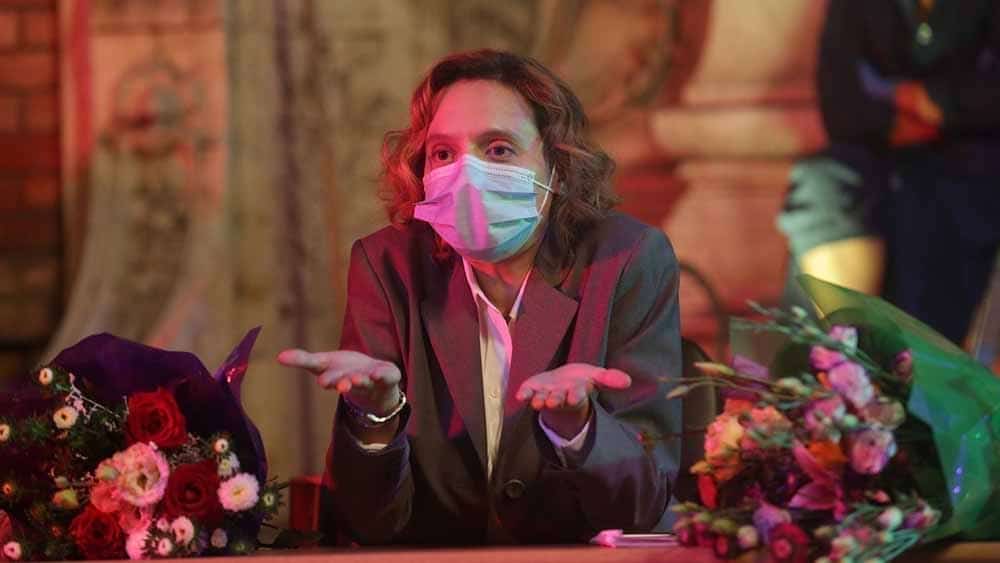
The winner of the Golden Bear at this year’s festival was Bad Luck Banging or Loony Porn, a left field choice because of just how bizarre it is, but predictable in the sense that it’s very much a “film of the moment”. Still, it’s certainly a statement for the jury to award top honours to a film that begins with an extended unsimilated sex scenes. The scene in question is an extremely OTT, comical homemade porn video made by the film’s main character, school teacher Emi (Katia Pascariu). When it accidentally leaks onto the internet, the parents at her school call a parent-teacher meeting to subject Emi to their moral-panicky rage and attempt to get her fired.
It was filmed during COVID and incorporates COVID into the world of the film. Poor mask wearing becomes an indicator of moral failure, such as when an indignant parent claims she’s “trying to do what’s best for the children” while wearing her mask under her nose. It feels cathartic to watch Jude relentlessly mock anti-maskers. It’s also incredibly anxiety-inducing, as the film reflects how little people care about actually protecting others, preferring to focus their outrage on an innocent woman’s sex life.
In the hilarious middle section of the film, Jude presents a series of visual jokes and puns, many of which relate to shameful parts of Romanian history. This vital piece of the film’s puzzle serves to place selfish, unsafe responses to COVID as just the latest in a long line of corrupt behaviour in Romania (although this behaviour is certainly recognisable in other parts of the world, too). Of course, it’s not long before the parents’ facade of polite concern is “unmasked” to reveal virulent anti-semitic and sexist tirades. Orla Smith
Drive My Car (Ryûsuke Hamaguchi, Japan)
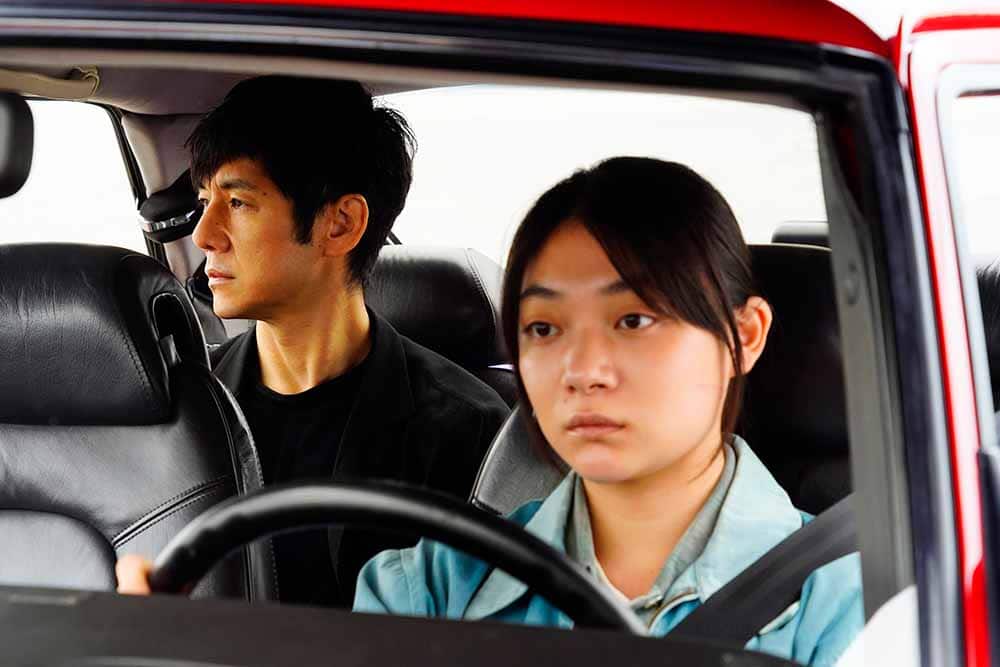
Drive My Car is the second film Ryûsuke Hamaguchi released this year, and while I narrowly prefer Wheel of Fortune and Fantasy, the less sombre of the two, both are of exceptional quality. They’re also both films that contemplate the unknowability of other people, portraying relationships in which characters use each other to process their emotions about completely different people and events in their lives. Drive My Car also has a play-within-a-film concept: it follows theatre director and actor Yûsuke (Hidetoshi Nishijima) as he stages a production of Uncle Vanya. It’s slow, contemplative, and three-hours long, but completely absorbing and worth the time it takes to process. OS
Read our interview with Hamaguchi on his other great film from 2021, Wheel of Fortune and Fantasy.
Flee (Jonas Poher Rasmussen, Denmark)

From the introduction to our interview with Jonas Poher Rasmussen: “Flee opens with silhouettes in gray and blue, an image of legs running, and the sound of heavy breathing. In voiceover, Rasmussen asks his dear friend, Amin, “What does the word ‘home’ mean to you?” It’s a strong distillation of the story the film will explore, of a man who has been constantly on the run, unable to find somewhere comfortable to call home, not just physically but emotionally, because he’s never told his story of fleeing as a refugee in full to the people who are closest to him. It’s also an introduction to the more abstract animation style that will characterise the moments of trauma that Amin recalls, more by evoking feelings than by faithfully depicting the facts of events.” Read the full interview.
The Gravedigger’s Wife (Khadar Ayderus Ahmed, Somalia)
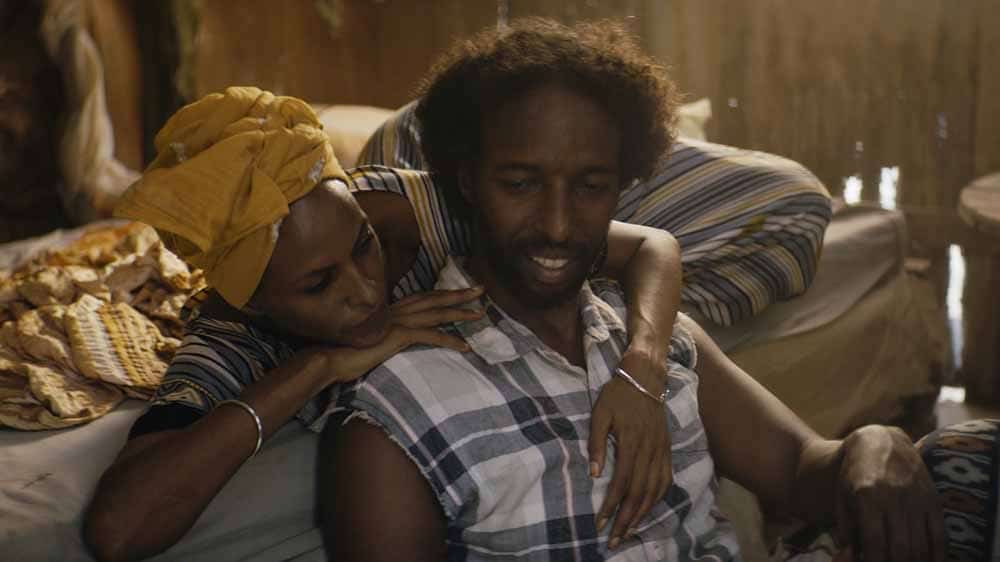
From our review: “In Khadar Ayderus Ahmed’s first feature, The Gravedigger’s Wife, which premiered in Semaine de la Critique at Cannes, the great irony is that Guled (Omar Abdi) earns his living by waiting for people to die, but is desperate to make extra cash to save his wife’s life. The film introduces us to Guled and his wife, Nasra (Yasmin Warsame), through small, intimate moments — giving Nasra a bath, making meals, crashing a wedding together — to give us a solid, observed relationship worth rooting for. Set in Dijibouti City, Somalia, Ahmed’s wide shots drop us into this world, letting slices of life seep into the frame in the shanty town where they live. You can feel the beat of the sun, the dirt on the road, and the warmth between the family members.” Read the full review.
ALSO READ: Our interview with Khadar Ayderus Ahmed >>
I’m Your Man (Maria Schrader, Germany)
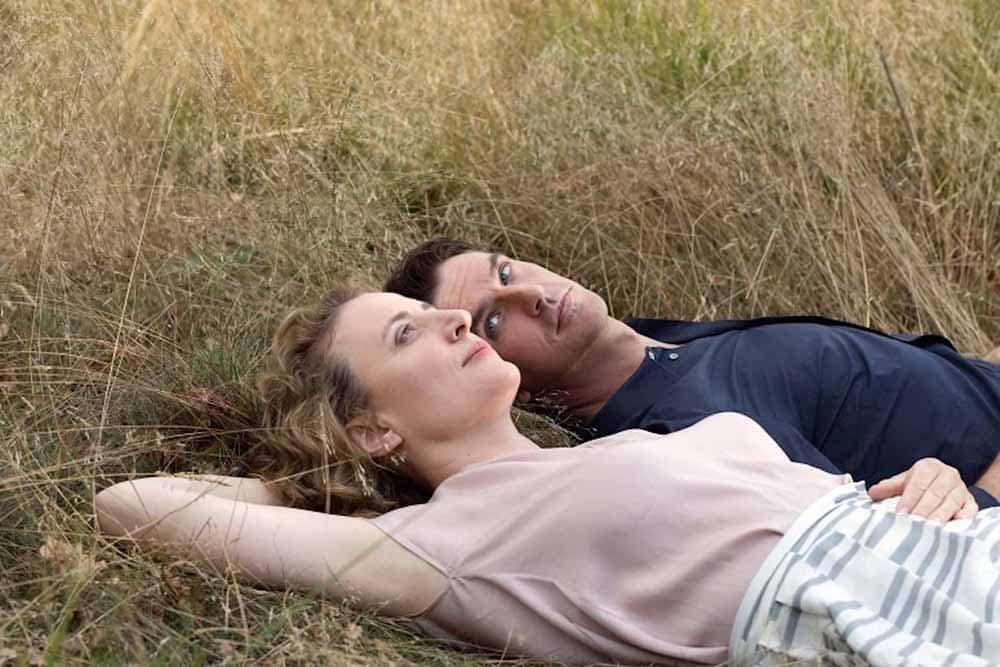
From our review: “How big is the gulf between what we think we want from romantic relationships and what we actually need or would settle for? Is part of the joy of a relationship the knowledge that you’re needed? Is a flawed partner more attractive because they make you feel less alone for also being flawed? How do we change to suit our partners in a relationship? Wouldn’t it be convenient if you could store your partner in the spare room with the vacuum cleaner and the exercise bike? These are some of the many complex questions at the centre of Maria Schrader’s Berlinale competition film, I’m Your Man. In the film, cuneiform researcher Alma (Maren Eggert) is asked to test out a new AI robot, Tom (Dan Stevens), who has been designed to be her perfect man. For three weeks, he’ll live with her and learn from her, and at the end, she’ll write a report about the experience, evaluating what he’s like as a partner.” Read the full review.
ALSO LISTEN: Our podcast on I’m Your Man >>
Lingui, the Sacred Bonds (Mahamat-Saleh Haroun, Chad)
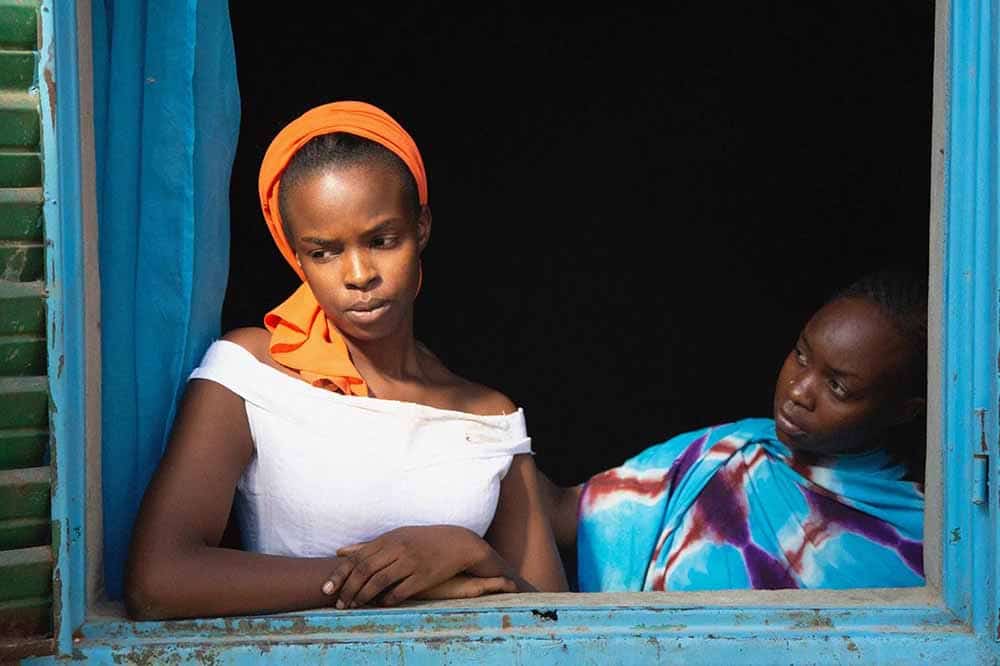
Lingui, which premiered in competition at the Cannes Film Festival earlier this year, follows Amina (Achouackh Abakar Souleymane), who got pregnant too young with no recourse but to have the child. She discovers that her fifteen-year-old daughter, Maria (Rihane Khalil Alio), is now also pregnant but wants an abortion. Amina has become a devout Muslim, seemingly as atonement for her out-of-wedlock pregnancy, and so must overcome her high religious standards to empathise with her daughter’s situation and prevent her from suffering the same fate that Amina did. Of course, abortion is illegal in Chad, where the film is set, so Amina must not only find a backstreet abortionist to perform the procedure, but also acquire an impossible sum of money quickly to get it done.
Even a film that I’d classify as ‘minor Haroun’ is an important event, and Lingui, the Sacred Bonds is also Haroun’s first film to focus on women, having made his name making studies of masculinity and systemic oppression. Although the performances are uniformly excellent, Haroun finds fewer deep insights into these characters than is usual in his films. Nevertheless, like all of his films, it has a rich sense of place, dropping you into a world where you can feel the sand beneath the characters’ feet, touch the cloth of their clothing, and feel utterly transported. Alex Heeney
Luzzu (Alex Camilleri, Malta)
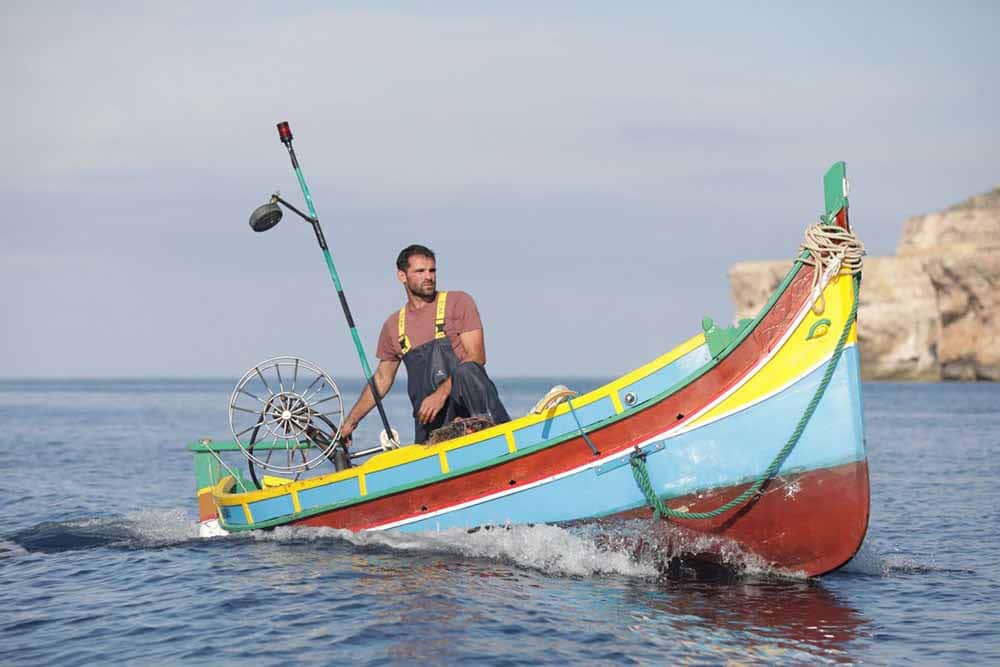
From the introduction to our interview: “Writer-director Alex Camilleri grew up as a first-generation immigrant in the United States with one foot in Malta. The more he grew to love film, the more he yearned to see Malta on film — not standing in for another country, but playing itself, which it had only done a handful of times. When it came time to make his first feature, he hopped over to Malta to find a story, and discovered an unexpected kinship with the fishermen there, who, just as Camilleri felt as a Maltese-American, were torn between tradition and modernity.
Camilleri spent over two years in Malta researching the industry and getting to know the fishermen to pen what would become Luzzu. From the get-go, he knew “that we had to use real fishermen and that I would turn fishermen into actors rather than trying to take an actor and turn them into a fisherman.” That gamble paid off, and the film’s star, Jesmark Scicluna, just won the World Dramatic Special Jury Award for Acting.” Read the full interview.
Olga (Elie Grappe, Switzerland)
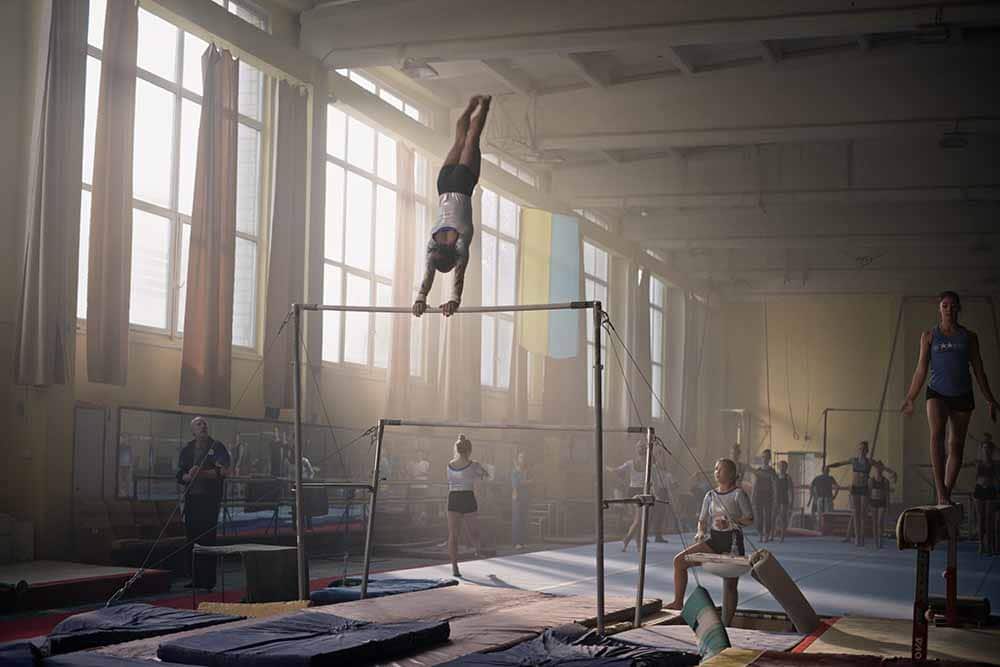
Interestingly, Olga is Switzerland’s submission even though the film is actually about two countries — Switzerland and Ukraine — and a girl who feels helplessly caught between them. It’s a sports film in which competitive gymnastics, in which young hopefuls practice obsessively to compete for their country (or a country), is used to explore national identity. Olympic-level success in gymnastics requires fifteen-year-old Olga (Anastasiia Budiashkina) to move from her home of Ukraine to her estranged father’s native Switzerland, where she competes for Switzerland. Meanwhile, back home, she hears from her mother and best friend about civil unrest in Ukraine. Olga strives for her own success in sports, but she also longs to be back home where she can join in the fight for a better future for Ukraine. First-time filmmaker Elie Grappe’s compelling character study marks him as a filmmaker to watch out for. OS
Pebbles (P.S. Vinothraj)
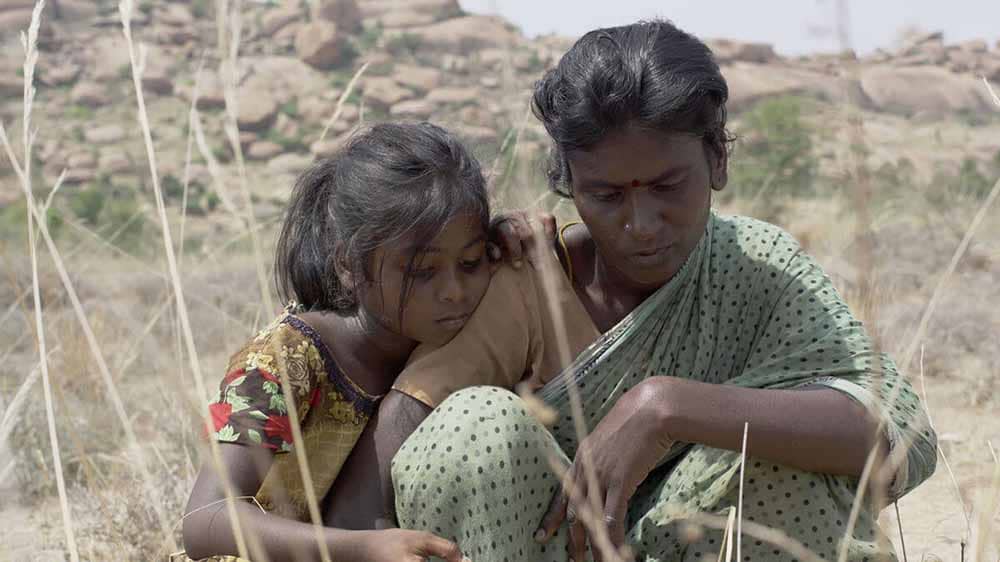
From our review: “Vexed father Ganapathy (Karuththadaiyaan) is determined to bring back his wife and daughter, who have fled home to escape his violence, in P.S. Vinothraj’s Koozhangal (Pebbles). Ganapathy forces his son to come with him to fetch them, and together, they undertake a 13km journey into the heart of a village experiencing a major drought.
Pebbles is a road movie without frills; “a father-son odyssey without designs of grandeur,” as I wrote in my review for Cinespotting. We see them walking through wide expanses of arid land, past leafless vegetation and boulders in the desert. The village of Arittapatti, near Madurai in Tamil Nadu, in which the film is set, is an agricultural land that’s turned barren. Through glimpses into women’s huts and men’s gambling dens, we see the dismal state of the inhabitants,who have been robbed of their livelihood.” Read the full review.
Playground (Laura Wandel, Belgium)

In Laura Wadel’s Playground, shot from the children’s perspective, a primary school playground is akin to a prison ground, where so much physical and mental abuse happens between children that it’s impossible for well-intentioned teachers to police — and not all of them are that well-intentioned. The film premiered in the Un Certain Regard section of the Cannes Film Festival, alongside The Innocents, also about the cruelty of children, but crucially, a story of children learning empathy; in Playground, children begin with some empathy, and the adults have the tendency to promote removing all of it.
Set mostly during recess, the film follows Nora (Maya Vanderbeque) on her first day of primary school, where her desire to hang out with her older brother leads him to attract severe bullying. Whenever Nora spots the bullying beginning, she tries to locate a teacher to stop it, but they’re all too over-extended and often too uninterested to help until it’s too late to intervene; instead, they end up blaming the victim because they don’t have proper context. The film keeps us in Nora’s perspective, the mostly handheld camera at her height, as she discovers that not only is her empathy for her brother unhelpful, but trying to act on his behalf can be actively harmful. AH
Titane (Julia Ducournau, France)
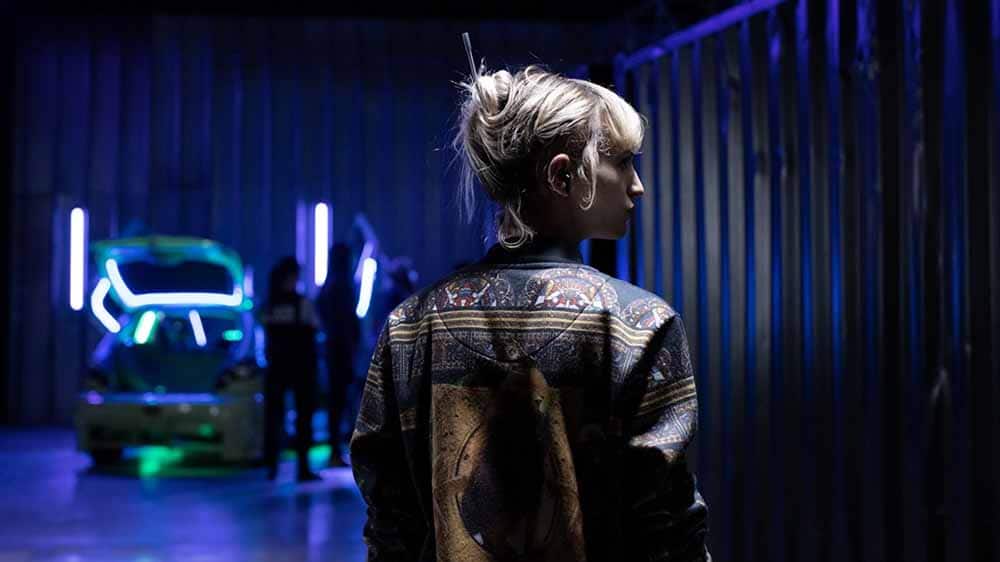
Raw director Julia Ducournau returns with Titane, a film that caused a sensation at Cannes, where it won the Palme d’Or. As always with any film featuring extreme, shocking content, the reactions have been divided and hyperbolic. It’s best to go into Titane with no expectations, and hopefully you’ll be won over by its thoughtful use of body horror to explore gender and identity.
The film follows Alexia (Agathe Rousselle), an erotic dancer who performs atop car bonnets while a crowd of mostly men leers on. She’s also a serial killer by night. What follows is a story about family, love, and the way the functions of your body can betray the way you want the world to see you. It’s often grotesque, but also sometimes sweet and heartfelt. It’ll certainly have you thinking and debating with friends afterwards, whether you love it or not. OS
ALSO LISTEN: Our podcast on Titane >>
The Worst Person in the World (Joachim Trier, Norway)

From our review: “In any other hands, and perhaps any other time, The Worst Person in the World would centre around Aksel (Anders Danielsen Lie), the sometime boyfriend of Julie (Renate Reinsve), the film’s actual protagonist. While remaining largely in the background of the film, Aksel pens a comic, gets a film adaptation of his work, loses the love of his life, goes off on cancel culture on the radio, and then has to reckon with his mortality. But since this is a Joachim Trier film, which, like all his films, was penned with Eskil Vogt, the driving engine of the film is not plot; instead, it’s a cinematic exploration of a more passive character’s emotional and intellectual experiences.
Most of Julie’s plot occurs within the film’s five-minute prologue: she switches fields of study from surgery to psychiatry to photography; has as many love affairs as career changes; and culminates by meeting Aksel, with whom she has a rom-com-esque meet cute before falling in love and moving in with him. What follows is the harder part: dealing with the consequences of your choices and finding the courage to keep making choices, to combat the passivity and complacency that it can be so easy and comfortable to fall into.” Read the full review.
Sign up for updates on our ebook on Joachim Trier and The Worst Person in the World >>
Yuni (Kamila Andini, Indonesia)
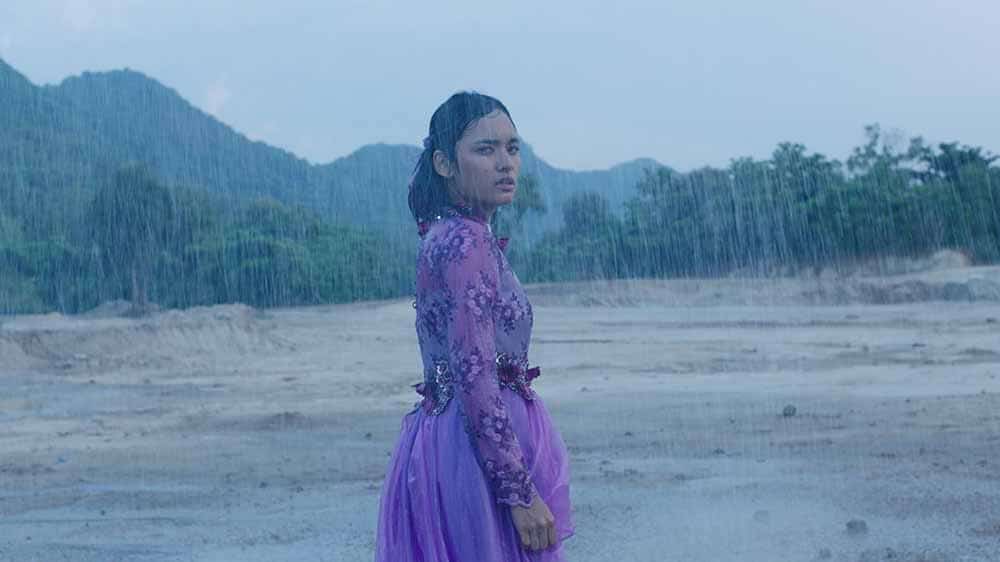
From our review: “Kamila Andini’s coming-of-age story, Yuni, follows the eponymous seventeen-year-old Indonesian girl on the cusp of adulthood as she figures out who she wants to be. Having seen friends her age get unhappily married, Yuni (Arawinda Kirana) wants to go to university, but there are strong pressures on her to get married and many suitors calling. Much of Yuni’s life is easily recognizable to western audiences: she hangs out with friends, goes to see a band play, lusts after boys, poses for Instagram, and discovers just how female masturbation works. But the patriarchal norms in her small town are strong; her suitors talk to her parents about the value of Yuni’s virginity, which Yuni only overhears by peeking through closed doors. At the same time, men hold the keys to her education: a male literature teacher stands between her and top grades, and she needs the help of a male student to succeed.” Read the full review.
You could be missing out on opportunities to watch films like these Best International Feature Oscar contenders at virtual cinemas, VOD, and festivals.
Subscribe to the Seventh Row newsletter to stay in the know.
Subscribers to our newsletter get an email every Friday which details great new streaming options in Canada, the US, and the UK.
Click here to subscribe to the Seventh Row newsletter.
